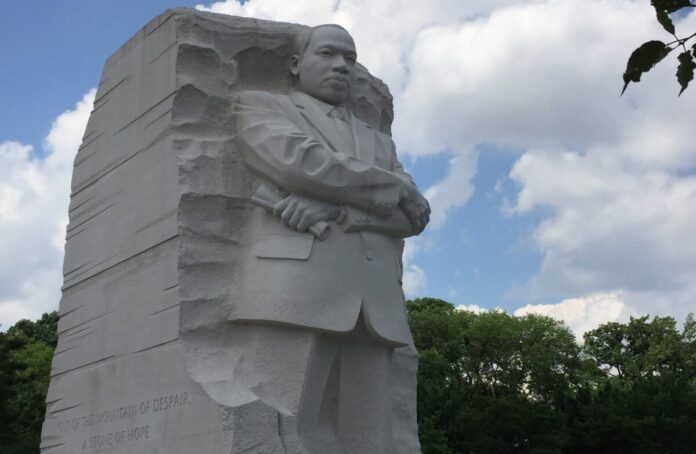
He would be 96 years old and have lived through many difficult times. He’d probably have several great-grandchildren and have written a few best-sellers. But, if he wrote his “I Have a Dream” speech today, would it be the same?
The speech transcended the immediate concerns of racial inequality, speaking to a universal desire for justice, dignity, and equality. Although it was rooted in the African American struggle for civil rights, the themes Martin Luther King, Jr. explored extend far beyond race. His vision was not only about ending segregation or racial discrimination but about building a society where every person—regardless of their background, religion, or race—could live in peace and have equal access to opportunity.
Judge by character, not color
At the core of King’s dream was the belief that people should be judged by the content of their character, not the color of their skin. This powerful idea touches on a broader vision of human equality, calling for empathy, mutual respect, and shared humanity. King’s message of justice extended beyond race, focusing on values such as fairness, freedom, and peace that resonate with people of all backgrounds.
His speech also highlighted the importance of nonviolence and love in pursuing social change. King encouraged people to rise above hatred and resentment, emphasizing compassion and a shared sense of purpose. His dream was of a world where people coexisted peacefully and worked together to dismantle systems of oppression that divide them.
In essence, Martin Luther King Jr.’s speech was about more than African Americans’ rights; it was about the broader ideal of human dignity. It called on everyone to reflect on their role in creating a just and compassionate world. His dream is a powerful reminder that the struggle for equality is not just a racial issue but a human issue, where every individual must be recognized as equal and deserving of respect.
The world today
If Dr. King were alive today, how would he view the world? Would his speech change? Would he see the progress his words helped inspire? Would he adjust his message to reflect our current struggles?
A few months ago, I watched children of various ages, skin tones, and backgrounds playing together at a local park. As they climbed and slid down bouncy houses, it was clear that their differences—whether in skin color, size, or family structure—didn’t matter. They were united by the joy of play, effortlessly interacting and laughing together. The adults around them watched protectively but didn’t focus on their differences either. It was a moment that spoke volumes about the potential for unity when we move beyond surface-level distinctions.
Some people argue that the world hasn’t changed enough—that racism persists, and the country remains deeply divided. They say polarization is here to stay. But I believe they are mistaken. While there is still much work to do, there are undeniable signs of progress. The children I watched playing reminded me that we can unite, regardless of race, gender, or culture, to share common experiences and build lasting connections.
God didn’t create us to ignore color but rather to appreciate and celebrate it. Our differences in skin tones, hair types, and features are part of what makes the world beautiful. We discover shared interests, values, and dreams as we grow and learn more about each other. This connection across differences is part of the legacy that Dr. King envisioned.
What would he think today?
Dr. King would likely remind us that the struggle for unity and justice is not a quick fix but a marathon. He would encourage future generations to keep striving for a world where people are judged by the content of their character, not the color of their skin. His message of nonviolence, unity, and love remains as relevant and powerful as ever, inspiring new leaders, new movements, and fresh visions for a world that lives up to the ideals of equality and freedom.
Ultimately, Dr. King would say that the journey is far from over. As long as injustice persists, his dream—our dream—remains unfinished. It is up to all of us to continue the work, striving toward a more just and compassionate world where all people are treated with the dignity and respect they deserve.
As we reflect on Dr. King’s legacy, it is impossible to ignore the lasting impact of his vision and the progress society has made since his time. His dream for a better world—based on justice, equality, and nonviolence—continues to guide us. The journey he began is ongoing, and each of us has a role to play in carrying it forward.






